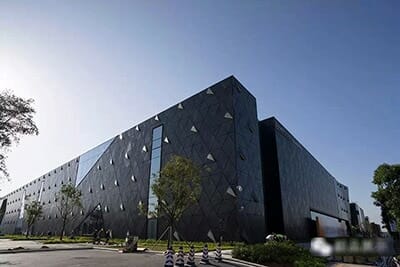
The REIT will be based on Vanke’s business park assets in the Qianhai economic zone
Vanke lost its title of China’s largest developer last year to Shanghai’s Greenland Group, but the Shenzhen-based home builder won a different prize this week by securing the right to launch China’s first real estate investment trust (REIT).
The REIT will be based on office park properties owned by Vanke in Shenzhen’s Qianhai special economic zone, just across the border from Hong Kong. The REIT, which was approved by the China Securities Regulatory Commission (CSRC) on Monday, will be managed by Penghua Fund Management and listed on the Shenzhen Stock Exchange, according to an account in Reuters.
As China’s real estate market slows, developers such as Vanke have been squeezed between sliding sales and climbing land prices, as local governments have throttled the supply of new sites going onto the market in an attempt to protect their own land sales revenues. The “new normal” of China’s real estate market is forcing developers to look for new ways to finance their projects, and REITs could be an answer.
Commercial Project Part of Vanke’s Diversification
Although the size of the new REIT is not clear at this time, it appears to be based on a 60,000 square metre office park project that Vanke built in Qianhai. According to a 2014 statement from the company, the low-rise development was 80 percent leased out by the end of March last year, and major tenants included HSBC, China Mobile and Hong Kong’s Hang Seng bank.
In the face of the housing slowdown, Vanke has diversified into commercial and logistics real estate as a counterweight to its traditional reliance on mid-market residential properties. Most REITs are based on commercial assets, whose steady rental returns can create an attractive proposition for retail investors.
Developers Squeezed by Property Slowdown
China is rolling out REITs as developers scramble for a variety of new financing tools that will allow them to ensure their ability to acquire new sites and build projects in an industry that is restructuring after a 15-year boom period.
After Vanke’s revenues fell 6.68 percent in the first quarter of this year and profits plunged by more than 57 percent, the company’s management pointed to the high cost of land acquisition and a challenging sales environment as causes for its disappointing results.
In May the country’s housing market saw month on month growth in prices for the first time in more than a year, but the current recovery has only come after the government made a series of policy changes to rekindle demand. In the medium to long-term, most analysts see the housing market slowing down.
REITs a Long Term Project on the Mainland
While REITs are common in many developed markets, China has struggled to implement the investment vehicles due to challenges in the country’s accounting practices and financial regulations.
In May last year China introduced a trial REIT-like product which was listed on a special section of the Shenzhen Exchange, but that entity was only made available to a limited number of commercial investors, and lacked the tax breaks and other structural elements that make REITs attractive in other markets.
The exact structure of Vanke’s new REIT has not yet been released.
In the absence of REITs, many of China’s largest developers have already stated their determination to go “asset light” by other means.
Shanghai’s Greenland Group and Dalian Wanda have both recently launched online funding products to finance new projects, with Wanda’s version set to debut on the market tomorrow.
In a less exotic approach to financing, many Chinese developers have done joint ventures to bid for new sites, or teamed with fund investors to back projects. Vanke itself is working with Carlyle to finance a planned set of shopping malls, with Canada’s CPPIB on housing projects, and with Blackstone to develop logistics centres.
Leave a Reply